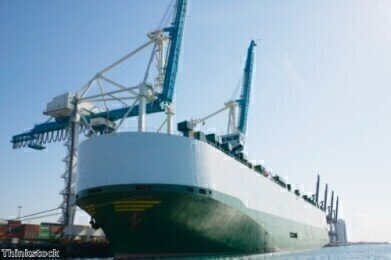Air Clean Up
Shipping industry urges Governments to take forward USD 5 billion proposal to accelerate the decarbonisation of maritime transport
Nov 16 2020
As governments come together at the UN International Maritime Organization (IMO) to consider important next steps to decarbonise maritime transport, the global shipping industry urgently calls on them to take forward its proposal for an industry-financed, USD 5 billion research and development programme, to catalyse the transformation of the industry from dependence on fossil fuels to operating with zero-carbon energy sources.
Although total emissions from shipping are about 7% lower than in 2008, there is a limit to what can be achieved so long as ships remain dependent on fossil fuels and global demand for maritime services continues to grow. The carbon reductions required by the IMO target of reducing total emissions from international shipping by at least 50% by 2050 compared to 2008, will only come from identifying and developing new zero-carbon technologies so that commercially viable zero-carbon ships can begin to operate in the 2030’s.
“As part of the cruise industry’s ongoing leadership and commitment to responsible tourism practices, CLIA along with other maritime sector partners have proposed to establish and fund a $5B Research and Development Board,” said Kelly Craighead, president and CEO of Cruise Lines International Association (CLIA). “The industry continues to look well beyond 2020 and is dedicated to working collaboratively across the sector to identify the new technologies and energy sources that will enable us to reach IMO’s ultimate goal of zero-carbon emissions across the maritime fleet.”
There are several potential solutions, such as hydrogen or ammonia produced from renewable energy sources, but these do not yet exist in a scale or form that can be applied to large ocean-going ships. A host of complex technical questions remain to be answered, including safety, storage, distribution, energy density considerations and lifecycle impacts. In short, we do not yet know what the fuels of the future will be.
The shipping industry has therefore proposed a USD 5 billion R&D programme, to be overseen by IMO and financed through a required R&D contribution of USD 2 per tonne of marine fuel consumed. The R&D programme would be managed through a non-governmental research and development organisation – an International Maritime Research and Development Board or IMRB. The co-sponsors emphasize that for the proposal to work, the R&D contributions need to be compulsory via an IMO regulation, to ensure that all shipping companies globally contribute, in a fair and equitable manner, and that the necessary funds will be generated to achieve the programme’s objectives.
A number of governments are understood to be positive to the proposal, subject to addressing issues such as governance.
The Industry is eager to work with governments to ensure that this initiative is implemented as soon as possible and calls on the IMO Marine Environment Protection Committee to support the development of the IMRB concept at its critical meeting starting November 16th. The IMO 2050 climate targets can only be achieved with the immediate acceleration of zero-carbon fuels and technologies, and the IMRB is a crucial vehicle for driving the progress needed to build a zero-carbon shipping industry.
Events
Apr 22 2024 Hannover, Germany
Apr 23 2024 Kuala Lumpur, Malaysia
Apr 24 2024 Sao Paulo, Brasil
May 05 2024 Seville, Spain
May 13 2024 Munich, Germany














